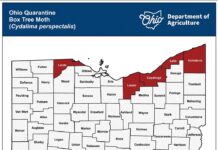
Several years ago, when Pulitzer Prize-winning columnist Tom Friedman was asked to choose which rising Asian nation, China or India, he’d bet the farm on, Friedman didn’t hesitate to pick India.
The reason, he explained, was that while both nations were on an expressway to the future, India, the world’s largest democracy, had an open road in front of it and China, the world’s largest communist nation, would hit a wall he called liberty.
Today, American farmers see only one wall, export-pinching tariffs, as they prepare to sell what the White House says will be $50 billion in American ag exports over the next two years to cash-and-carry China.
Hedging its bets
But as the U.S. and China continue to hammer out what the Trump Administration calls Phase One of a bigger trade deal, the still communist China is hedging its bets.
On Nov. 4, it pushed to near-completion a 15-nation, Asia-centered trade deal named the Regional Comprehensive Economic Partnership, or RCEP.
Asia-centered deal
RCEP is noteworthy for several reasons. First, unlike the Trans-Pacific Partnership (TPP) that recently went into effect and pointedly excluded China, this one is driven by China. If mildly successful, explains Bloomberg, it will likely build the “world’s biggest free-trade bloc.”
That’s not good news for American farmers because, while the RCEP “hasn’t deliberately excluded the U.S. … to join, it would first need to reach a free-trade arrangement with Asean [the Association of Southeast Asian Nations] then apply to join,” Bloomberg notes.
Why the years-long maneuver to join this massive, new trade group that already includes key American food buyers like China, Mexico, and Japan? Mostly because the Trump Administration pulled out of the nearly completed TPP just days after taking office in 2017. Choosing to be on the outside of TPP back then put the U.S. on outside of RCEP now.
Troubling
Two other facts about the soon-to-come, China-centric deal make it particularly troubling in today’s period of American-led trade tension.
First, India was a key part of RCEP but pulled out at the last minute. The reason, it claimed, is that China’s manufacturing sector threatens India’s now-slowing internal job growth, tens of millions of its small farmers, and its growing trade deficit.
China, rather benignly, accepted India’s withdrawal and noted it will warmly welcome it back into the group when circumstances change — diplomatic talk for when Prime Minister Narendra Modi departs. The quick acceptance and even quicker forgiveness of India’s unforeseen move signals a new, almost unprecedented Chinese willingness to use diplomacy rather than muscle to broaden its regional and global influence.
Lack of forethought
Equally troubling is that U.S. Secretary of Commerce Wilbur Ross, who attended the Nov. 4 meeting of RCEP member-states, described the deal as “a very low-grade treaty” that “lacks the scope of the TPP.”
How’s that for nerve: The Trump Administration dumps on a new trade pact that will “encompass 40% of the global gross domestic product and 45% of the world’s population” by comparing it to another trade deal it dumped without hesitation more than two years ago.
That lack of forethought didn’t stop TPP; it’s in effect today — without the United States’ unmatched influence coming to bear on any signee. Now China is putting the finishing touches on an even bigger trade deal with all of Asia that also excludes the U.S.
Meanwhile, the go-it-alone White House is hoping to get China to buy U.S. farm goods at about the same level it was buying before the costly, price-busting tariff war began 18 months ago.
So, as the White House openly panders to its rural voters, China, wall or no wall, continues to play the long game. RCEP will supplant U.S. influence — and, perhaps, U.S. food — throughout Asia for years to come.
The U.S. and its farmers, however, just continue to get played.













The attack on the Trump government is completely uncalled for. It is NOT the reason for low farm product prices. Put the blame where it TRULY belongs-the push that was made YEARS ago to ‘get big or get out’ as well as government pushing farmers to ‘produce more to feed the expansion of the population by billions of people’. The over production of farm products is what is keeping prices low-NOT trade. Older farmers-most of whom are dead now understood this, but the younger farmers have been brainwashed into playing the ‘blame game’… Farmers have been tricked into destroying countless other farmers as a part of this brainwashing. Consumers need to pay more for their food. The only thing over production results in is the destruction of more farmers.
Does anyone notice that Asian countries and some European countries understand and play the long game in many areas? Only here in the USA do we seem to focus on quarterly reports. To slightly restate Mr Guebert’s last sentence, “the U.S. just continues to get played.”